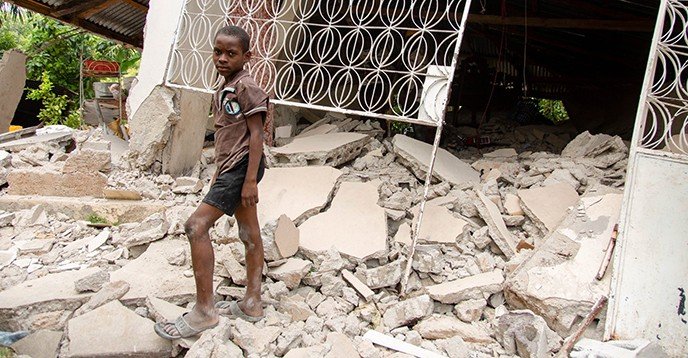October 13th of each year is associated with one of the 7 targets set out in the Sendai Framework: the international agreement that runs until 2030. In 2022 corresponds to target g which implies «Significantly increase the availability of and access to multi-hazard early warning systems and disaster risk information and assessments transmitted to people by 2030».
Increasing the availability of Early Warning Systems and Information and Risk Assessments to people is the focus of the International Day for Disaster Risk Reduction 2022.
To achieve any goal in this regard, disasters must be analyzed in the context of a changing world at all spatio-temporal scales and in all natural and human dimensions, with an integrative vision of all the natural, economic, social and political elements that determine the state and evolution of the «nature – human interventions» relationship.
The key to success lies in reducing risk, with the deepening of knowledge of hazards, vulnerabilities and their causes, simultaneously with the strengthening of monitoring and warning systems and education and communication programs.
According to United Nations data, Latin America and the Caribbean is the second most disaster-prone region. Since 2000, about 152 million people in the region have been affected by 1205 disasters caused by floods, hurricanes, storms, earthquakes, droughts, avalanches, fires, extreme temperatures and weather events; 34 million people were affected by storms and 14 million by earthquakes (OCHA, 2020).
According to the UNDRR, of the 175 disasters recorded in the region between 2020 and 2022, 88% have been of meteorological, climatological and/or hydrological origin, accounting for 40% of recorded disaster-related deaths and 71% of economic losses; while IRIS notes that a total of 205 earthquakes above 4 on the Mercalli scale have been recorded between September and October 2022 alone, including 19 above 5.
The UNESCO Regional Bureau of Science for Latin America and the Caribbean maintains an organized and systematic work to support countries in disaster risk reduction. As part of this, between 2021 and 2022, with funding from the Government of Japan, within the framework of the project «Capacity Development for Disaster Risk Reduction in Built Areas in Latin America and the Caribbean» (BERLAC), it evaluated the «State of informed public policies»; with case studies carried out in Mexico, Guatemala, El Salvador, Cuba, Haiti, Dominican Republic, Ecuador and Peru.
This year, also with the Japanese contribution, the project «Strengthening local and community capacities in the face of natural disasters in the Caribbean» is being coordinated, focusing on the Bahamas, Haiti, Dominican Republic, Saint Lucia and Saint Vincent and the Grenadines.
In line with the central theme of the International Day for Disaster Risk Reduction, the results of the BERLAC project showed that there is a good knowledge of disaster risks in the region; that the population is well informed and aware of the existence of institutions dedicated to the study and management of these phenomena and knows what they do; that the monitoring and early warning systems are functioning and effective; and that the role played by education in schools in preparing the population is recognized.
This project also noted the importance and need to broaden and deepen education and communication processes; to improve monitoring and early warning systems; and to have public policies that demonstrate the commitment of governments to development based on knowledge of risks and with the participation of the population.
Learn more
- What is the Sendai Framework for Disaster Risk Reduction?
- United Nations Office for Disaster Risk Reduction (UNODRR)
- UNESCO: International Day for Disaster Risk Reduction – October 13th
- United Nations: International Day for Disaster Risk Reduction
- Safe and Prepared: A Teacher’s Guide to Disaster Risk Reduction (2014)
- Safe and Prepared: A guide for parents on disaster risk reduction (2014)
- Safe and Prepared: A Student’s Guide to Disaster Risk Reduction (2014)



